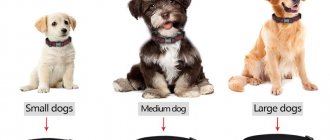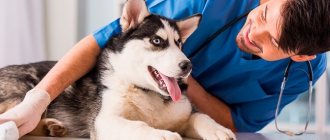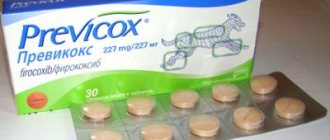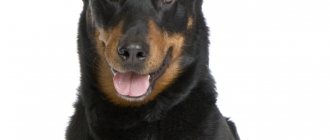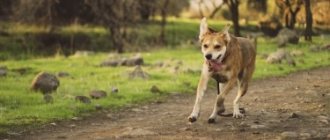Neutering a Yorkshire Terrier is an important step for its owner. Surgery often seems like a scary and unpredictable undertaking that is difficult to decide on. It is necessary to first weigh the pros and cons of castrating a Yorkie, carefully familiarize yourself with the method of carrying out the procedure and learn about its advantages and disadvantages.
Yorkie boy on the operating table
Castration Yorkie
When is the best time to neuter a Yorkie?
The appropriate period for castration of males is 8-12 months. At this time, their body has almost formed and the absence or reduction of some hormones will not have such an impact on their health. It is recommended to castrate female dogs after their first heat. Removing the ovaries and testicles too early can lead to problems with growth and behavior.
Preparing to castrate a Yorkie
Before castration, the pet is taken to a veterinary clinic to check its health. The operation is performed under anesthesia, so an exhausted or sick body should not be overloaded, especially the heart.
How does castration of a Yorkie happen?
The dog is put under anesthesia and an incision is made, removing and excising the testes in males and the ovaries and/or uterus in females. Sutures are placed and the patient is brought out of anesthesia. Pain relievers and heart support medications may be given. It is better if the dog can be left in the hospital until it completely recovers from anesthesia. Sometimes this process takes several hours.
York after castration
For the first hours after surgery, the Yorkie is not allowed to move. It is advisable to place him in a cage with soft and warm bedding. The sutures are treated as prescribed by the doctor and the condition of the incision is monitored. Rejection of the suture material or tissue inflammation is possible, which depends on the individual reactions of the body. It is better for the bitch to wear a blanket, and for the dog a plastic collar, to prevent licking of the castration wound.
After complete recovery, which comes after a few days, the dog should have a good appetite and normal behavior. Does a Yorkie mark territory after neutering? In 90% of cases he stops doing this, but habits sometimes overpower and remain for life.
If a dog's aggressive behavior was associated with the action of sex hormones, then it will become calmer. When she is simply cowardly, nervous and aggressive due to psychological factors, then castration is unlikely to change the situation radically. Metabolism slows down, so the dog is given light food to avoid obesity.
Neutering a Yorkshire Terrier is an important step for its owner. Surgery often seems like a scary and unpredictable undertaking that is difficult to decide on. It is necessary to first weigh the pros and cons of castrating a Yorkie, carefully familiarize yourself with the method of carrying out the procedure and learn about its advantages and disadvantages.
Advantages of the operation
After castration, the owners of bitches can relax, since, first of all, all the problems associated with their pet’s estrus will disappear. Now you don’t need to constantly wipe away random drops of discharge that your baby can leave anywhere. Or run to the store for special panties.
The bitch will stop chaotically marking her territory in order to attract males with her scent, which she constantly did during the period of sexual desire. Now you can safely go for a walk - the males will not attack the bitch, and she will no longer suddenly run away in search of a random gentleman. The problems that pregnancy, childbirth and offspring entail will also disappear.
The owners of the male dogs will also be in for some pleasant surprises. After castration, their boy will stop intensely marking his territory and will not get into a fight with another male for the right to own a female. He will no longer run away from his owner as soon as he smells the smell of a female dog in heat. There will be no more sexual attraction in relation not only to bitches, but also to toys, to pillows and to people’s feet.
Now the male dog will not be distracted from training by a sharp jump in testosterone levels, which means the pet will become more attentive. The Yorkshire Terrier is a dominant dog, eager, like all terriers, to be first both at home and on the street. Castration can reduce his ardor, making the pet more obedient and adequate.
In general, castration has a beneficial effect not only on the psychological state of the Yorkshire Terrier, but also on the physical one, because this operation can significantly reduce the risk of diseases such as:
- tumors of the genital organs;
- cancer of the genital or mammary glands;
- inflammation of the genital organs;
- hernia in the perineal area.
Castration will be an excellent prevention against many chronic diseases in dogs. For example, from renal pathology. It can also be carried out on the recommendation of a doctor. For example, if the dog has injuries in the perianal area.
As can be seen from the above, castration can prolong the life of the Yorkshire Terrier. Despite so many advantages, castration is not without its disadvantages.
What you need to know about spaying and neutering Yorkies
It is generally accepted that male Yorkies are castrated and female Yorkies are sterilized. However, in reality the picture is completely different. Both operations are applicable to dogs of both sexes, but there are certain differences.
When sterilized, pets are deprived of reproductive function, but it is reversible. All organs of the reproductive system are not removed; the production of sex hormones in animals continues. But at the same time, the seminal flows of males are tied, and the fallopian tubes of females are tied. Subsequently, upon the owner’s request, a second operation can be performed, which will allow the pet to reproduce.
But castration is a more serious procedure. After it is carried out, animals are irrevocably deprived of the opportunity to reproduce offspring.
Basic Concepts
Before moving on to a discussion of this surgical intervention in the life of a Yorkshire Terrier, you need to pay attention to the fact that there are two similar operations:
- sterilization;
- castration.
There is a difference between these operations.
Sterilization is done only to ensure that the animal is no longer able to reproduce. The vas deferens of a male Yorkshire Terrier are ligated, and the oviducts of a female are ligated. The reproductive instinct, as well as the desire and behavior associated with it, remain the same in the dog. Males continue to chase after females, and those, in turn, continue to be in heat.
Sometimes sterilization is done due to doctor's orders. For example, if a bitch is diagnosed with a tumor in the area of the uterus.
After sterilization surgery, the owner of the dog may encounter some changes in its usual lifestyle. The animal may show aggression, be nervous and restless, and may lose its appetite.
Your pet may develop problems with the genitourinary system, inflammation of the genitals, and an increased risk of tumors. Bitches may exhibit all the symptoms of false pregnancy and their consequences. For example, mastitis is hardening of the mammary glands.
Castration is the complete removal of the gonads in animals: in males - the testes, in females - the ovaries. As a result of such an operation, the dog’s sexual desire completely atrophies, which means that the dog’s behavior changes radically.
If you are not going to engage in breeding and do not want to bother with offspring and solve all the problems associated with this process, then, of course, you can have your Yorkshire Terrier neutered. Especially if, on top of everything else, your pet behaves inappropriately during moments of sexual arousal.
But remember that once the surgery is done, there is nothing you can do to fix it. Therefore, before making a serious decision, thoroughly weigh the pros and cons. So that you can fully understand what awaits you and your dog if it is castrated, let's look at what such a surgical intervention is.
Is castration necessary for Yorkies?
Many pet owners have doubts about whether they really need to neuter their Yorkie. Such issues must be resolved independently, but certain pros and cons of the procedure can be identified.
Main reasons
Sterilization is used solely to prevent the pet from producing unwanted offspring. At the same time, all systems and organs of the animal are fully functioning, sexual desire and estrus are present.
Castration of animals helps eliminate behavioral problems that are associated with sexual desire. These include:
- aggression within a species;
- leaving genital marks;
- shoots;
- caring for bitches in heat.
Optimal age of a dog for castration
Owners often do not know at what age a Yorkshire Terrier should be neutered. Russian veterinarians consider the most successful time to be between six months and one year. At this time, in males the testicles descend into the scrotum, and in females it is the time of the first estrus.
In Western countries, early sterilization of animals is practiced. In the US, Canada and Europe, your Yorkie puppy must be neutered when it reaches three months of age. In Russia, this practice is not approved, because they believe that performing surgery at an early age has a negative impact on the development of internal organs.
Three month old Yorkie puppy
Disadvantages of the operation
After castration, the Yorkshire Terrier may begin to gain weight. This can lead to obesity, which can cause the dog to develop physical problems. This is due to the fact that the pet began to spend less energy. To avoid such complications, you need to reduce the amount of food he consumes when feeding him natural products.
If you feed your Yorkshire Terrier with ready-made food, then you need to purchase special food for neutered dogs. Choose premium brands of food, only they contain all the substances necessary for such animals. Remember to monitor your pet's weight changes.
You should also take your dog for walks as often as possible so that he can continue to develop properly physically.
Due to castration, the already long-haired Yorkshire Terrier may begin to increase hair growth in the neck, sides, and limbs. In this case, you will have to trim your pet more often.
But most importantly, after surgery, the risk of diseases such as malfunction of the thyroid gland, bone or urinary tract cancer, and tumors inside the heart vessels increases.
https://www.youtube.com/watch?v=KeOXh49J0Ic
Preparing to sterilize your Yorkie
Like any other surgical intervention, castration requires careful preparation of the pet. You need to start with a consultation with a veterinarian, certain tests and an ultrasound of the heart. It is recommended that the preoperative examination be carried out in the same clinic where the procedure will be performed in the future, so that the surgeon has a complete clinical picture of the patient.
Only a completely healthy animal can be operated on. Therefore, a couple of weeks before the event, it is necessary to carry out helminth prevention. Vaccinations must be done 3-4 weeks before the procedure. It is prohibited to do this during the postoperative period, since the pet’s immune defense is reduced.
The procedure for castration
The procedure algorithm differs little from similar interventions for other types of domestic animals. The dog is placed on its back and secured. The dog is in a state of deep sleep, completely relaxed.
- First, the surgical field is prepared - the hair is removed and the skin is disinfected.
- An incision is made along the scrotum to the size of the testis.
- The testis is removed through the incision, and a bridge is placed on the duct with a ligature to eliminate bleeding. The gland is removed, stitches are applied, and the wound is sutured.
- Owners are encouraged to simultaneously perform an excision of the scrotum, in which case the dog will look more aesthetically pleasing. On the other hand, this will increase the price of castration.
After the stitches are placed, the dog is given medications to reverse the effects of the anesthetics. The pet gradually regains consciousness. The operation itself can last an hour, subsequent resuscitation can take up to 3 hours, depending on the animal's sensitivity to medications. Most often, the dog simply sleeps, but activity may be observed under the influence of drugs, then the movements of the household must be limited.
Preparation and post-operative care
For castrated dogs, care is required during the postoperative period. Males tend to lick wounds; in addition, a healing incision can become a cause of concern at first - it will tug, itch, and ache. The dog may try to reach the wound with its tongue or teeth. It is necessary to prevent his attempts by wearing a special collar - it may be uncomfortable for the dog, but this is a necessary measure.
- If you do not have a decorative dog, then while walking you will have to limit the dog’s activity and reduce the time spent outside until the stitches are completely healed;
- Check the condition of the stitches twice a day and use an antiseptic prescribed by your veterinarian for treatment. Modern medications for dogs are now sold in a convenient spray form, which allows you to quickly treat the wound;
- If the stitch breaks or you see inflammation or suppuration, take your dog to the doctor immediately without waiting for complications.
Most often, healing takes about 5-7 days. The sutures fuse together, and the doctor can safely remove the fastening threads. It takes another two days to heal the puncture marks. There is no need to bathe the dog; the skin should not get wet. Use all kinds of ointments only after consulting a veterinarian, they can soak the seam.
You need to understand that timely castration of a dog will help prevent the formation of unfriendly behavior in the male; what initially happens under hormonal influence is subsequently consolidated in the dog’s behavior. The final decision must be balanced and truly appropriate.
Carrying out the operation
The surgical procedure looks like this:
- The dog is placed on a sterile table.
- The animal is given anesthesia.
- The hair is removed from the incision site.
- This area is treated with an antiseptic.
- The animal's groin area or scrotum is cut.
- The surgeon removes the genitals.
- The incision is sutured and treated with an antiseptic.
Male dogs do not need to untie the stitches. In females they are removed a couple of weeks after the procedure. The operation takes about 10 minutes for males, while for females it can take up to 40 minutes.
York during genital removal surgery
Postoperative care
Immediately after the operation, the animals require special care. At the same time, males are less demanding in this regard, since due to physiology, castration is easier for them.
A good owner should follow several points:
- The dog will be discharged from the clinic before waking up, but due to anesthesia, its heat exchange is impaired. In this case, veterinarians advise covering the animal with a blanket or blanket.
- At home, the animal should be given a quiet place where it will not be disturbed. The dog can urinate on itself, and therefore it is necessary to prepare a moisture-absorbing diaper in advance.
- You should not feed your dog for at least 4 hours after the procedure. For 2-3 days after this, it is worth keeping the animal on a gentle diet. If your Yorkie is on a natural diet, then it should be fed liquid porridge. If the dog eats dry food, it is recommended to soak it before feeding.
- In case of systematic ailments, you need to go to the clinic.
After operation
After castrating your Yorkshire Terrier, you will have to wait until the surgeon monitors how he recovers from anesthesia. Only after the dog has fully recovered can it be taken home. You cannot transport your pet in your arms, and even on public transport. For this purpose, it is best to use a carrier with a hard and insulated bottom. To make your Yorkie more comfortable, you can put an additional mattress on the bottom.
After surgery, a male dog usually has no appetite. This may continue for one to two days. Do not forcefully try to feed your pet. Just leave some clean water nearby just in case.
The dog may have poor coordination of movements, and may not respond to external stimuli, such as bright light or noise.
After castration, you will have to provide the necessary care for your Yorkshire Terrier: treat the stitches with medications prescribed by the veterinarian. Be sure to wear special panties or a collar on your pet so that he cannot injure the incision site.
Yorkshire terrier bitches recover from surgery somewhat differently. The dog may vomit, urinate involuntarily, and not respond to anything for two days. Depending on the individual characteristics of the body, the bitch’s temperature may drop, causing her to begin to tremble.
Therefore, you need to prepare in advance a place where the Yorkshire terrier bitch will rest after surgery. Be sure to insulate the bed by placing a heating pad and additional bedding there. Don't forget to put a disposable diaper on top, which will do a great job of removing excess liquid. Change diapers when they get dirty.
Place clean water next to the bed. For the first 24 hours, you don’t need to feed the dog if it doesn’t want to. After a day or two, you can start giving her food that is easy to digest. For example, liquid porridge or easily digestible soaked food. After four to five days, it will be possible to feed the Yorkshire Terrier bitch with nutritious food. Consult your doctor about what exactly to choose in food at first.
You will also have to treat your surgical sutures according to your surgeon's recommendations. After two weeks, the stitches will need to be removed. Try to prevent your dog from trying to scratch the cut area by wearing special panties or a collar. To prevent the bitch from becoming inflamed after castration due to various infections getting into the wound, you will have to give her a course of antibiotics.
Have you neutered your dog? Share with us in the comments how it all happened.
If the article was useful to you, please share it with your friends.
Questions and answers to frequently asked questions about sterilization
In addition to standard questions, such as when to spay a Yorkie girl, there are a number of others that need to be answered. The most popular are the following:
- What is the cost of the procedure? How much the surgery will cost depends on the dog's weight. Castration of animals up to 5 kg will cost 2-2.5 thousand rubles.
- How to avoid complications? It is necessary to take care of the dog: do not let it lick the seam, limit its movement until the scar heals.
- How long does the reaction to anesthesia last? Vomiting and disorientation in a dog may occur for about a day after anesthesia. Animals often have an allergic reaction to drugs. The duration of such phenomena depends on the individual characteristics of the pet.
Consequences after vaccination against coronavirus
Talking about the consequences of coronavirus that can affect a person’s life in the future, one cannot help but mention the complications after vaccination against COVID-19. The vaccination campaign is gaining momentum. Despite the fierce debate among supporters for and against the coronavirus vaccine, vaccination statistics show that about 30% of the world's population has already been vaccinated.
How the vaccine works, whether you should be afraid of the consequences after vaccination against coronavirus and whether there are ways to protect yourself from complications - we will tell you further.
Coronavirus vaccine - consequences of vaccination
The injected drug familiarizes the immune system with the virus. In response to foreign invasion, the body launches immune defense. Therefore, the very first consequence of the coronavirus vaccine is swelling and redness in the injection area. This is a local reaction, it is caused by the rush of cells to the site of vaccine administration, the task of which is to prevent the spread of the disease throughout the body.
Next, the drug with the virus enters the blood. The body’s natural response is to “heat” the body to destroy the enemy, produce antibodies to fight it, and “memorize” the pathogen in order to quickly destroy it when it hits it again, preventing the development of the disease. Thus, a vaccinated person develops lasting immunity to COVID-19.
When the temperature rises, muscle weakness appears, and headache is a normal reaction. How long and how severe such consequences will appear after vaccination against coronavirus depends on the individual organism. The same infection (any kind at that) is tolerated differently by different people, so the drug itself has nothing to do with it. Often, after the vaccine is administered, no external manifestations or reactions are observed.
Vaccination against COVID-19: complications and contraindications
But do not confuse the reaction to the introduction of the vaccine with complications after vaccination against Covid. A complication is an unexpectedly serious condition that occurs after administration of the drug. Such conditions include anaphylactic shock (a sharp drop in blood pressure, cessation of oxygen supply to organs and tissues), the occurrence of convulsions, encephalitis and other serious conditions.
Similar reactions develop in those who have contraindications, but for some reason have undergone the vaccination stage. You cannot vaccinate if you have:
- chronic kidney pathologies; diseases of the cardiovascular, endocrine, hematopoietic systems; autoimmune disorders; pronounced pathologies of the central nervous system; severe allergic reactions with previously administered vaccinations.
If such pathologies are present, there is a high risk of complications after vaccination against Covid. Persons under 18 years of age, people over 65, and pregnant women cannot be vaccinated. For those who have recently suffered a severe form of coronavirus, it is also better to hold off on the vaccine, since after the illness there is an increased level of antibodies in the body. As a result of vaccination, their number will increase even more, which can cause a violent immune reaction in the body - the cytokine storm that we talked about above.
Is castration of a Yorkie necessary: reasons and when is the best time to do it?
First of all, castration of a Yorkie is important because, under the influence of the instinct to reproduce, the animal can escape, and this, in turn, can turn into a real tragedy for its loving owners. Castration will also help make the dog calmer, reduce aggression, and reduce the risk of developing tumors, prostatitis, and other sexually transmitted diseases. Ideally, castration should take place at 5-7 months; it is not recommended to carry out this intervention at an earlier age, since in this case the physical development of the puppy may be inhibited.
Nevertheless, you shouldn’t delay too much with such an intervention, since sexual desire may remain. Remember that a strong, uncontrollable sexual desire can lead to the fact that your four-legged friend may one day simply run into the street, driven by natural instincts.
What to consider before castrating your Yorkie
Before performing surgery, you must make sure that the dog is completely healthy. To do this, you need to undergo a number of tests that will reveal both hidden and obvious diseases, here are the tests you need to undergo before going under the knife of a veterinary surgeon:
- blood chemistry;
- classic blood test;
- Analysis of urine;
- general veterinary examination.
The most humane and humane method remains surgical; with this method, the veterinarian removes the testicles. Sterilization can also be done at home . This is a very convenient method, especially for those owners who have neither the time nor the desire to visit a veterinary center. By the way, another plus in the direction of castrating a Yorkie is that the risk of a tumor in the dog is reduced, since there will be no extra hormonal load on the body.
Caring for a dog after castration of a Yorkie
It goes without saying that the dog will need post-operative care, the intricacies of which will be explained by the veterinarian. This will likely include the following activities:
- Timely examination by a veterinarian.
- Treating the seams with a special ointment that promotes wound healing, as well as timely disinfection.
- More careful hygiene of the treated area than usual.
- Removing seams, monitoring the condition of the seam.
- Care also involves drawing up a specialized diet that will help not only not to gain weight, but also to keep the dog active throughout the recovery period.
- It is also necessary before surgery to expel all skin parasites: ticks, fleas. This is necessary not only to avoid scratching. This measure will help avoid infection and make the postoperative period easy and enjoyable for both the owner and the dog.
All these measures will help the dog’s suture heal as quickly as possible, and complete recovery, as a rule, occurs 8-12 days after the intervention . If the process proceeds without complications, then, as a rule, antibiotics are not prescribed. It is not difficult to care for such a dog, the veterinarian will give all the instructions and prescriptions, all you have to do is follow everything carefully and this way you will be able to avoid complications. There is a common myth that after castration, dogs get fat, and a neutered Yorkie begins to consume a lot of food, as a result of which he can die from obesity. If you notice weight gain in your male dog after neutering, talk directly to the doctor who spayed the dog .
Is it possible to castrate a Yorkie at home?
In the recent past, such a procedure was carried out exclusively within the walls of veterinary centers, which are crammed throughout Moscow. In Yorkies, this procedure requires a particularly delicate approach, given the small size of the dog. Veterinary doctors have all the necessary skills to ensure that even such an operation takes place without consequences for the little charming friend. Of course, after the intervention, new marks may appear on the dog’s body, and consequences in the form of a bump are possible. However, there is no need to be afraid of castration at home. Thanks to modern technologies, everyone has a unique opportunity to perform castration in a comfortable environment, with minimal stress for the pet.
Remember that before any surgical intervention it is necessary to obtain a consultation from a veterinarian, his approval for the intervention, and only then can you additionally call a surgeon, an anesthesiologist and carry out the necessary intervention in the comfort of your home. It should be noted that during surgery, doctors use the most modern drugs that have virtually no side effects on the puppy’s body, however, various individual reactions, such as allergies or heart failure, should be taken into account.
This is why it is so important to see all doctors, including a cardiologist, before any surgical intervention.
Why is it so important to monitor your Yorkie after castration surgery?
Many owners are terrified of neutering their Yorkie, delaying the operation until an indecently late date. Also, during the postoperative period, your pet may develop a lump; this is one of the signs of complications, which is why it is so important to have on hand the phone number of a trusted veterinary center, where you can always call and seek help from professional doctors. It is important to contact veterinarians who really love and respect their work, during which they think not about money, but about how to help the animal. So why is it worth turning to us for help, while there are plenty of veterinary centers with other doctors around? The answer is very simple: at our veterinary clinic, we have friendly staff, as well as a large selection of highly specialized specialists who sincerely want to help the pet, among them the following specialists:
- veterinarian;
- ratologist;
- dermatologist;
- dentist;
- ophthalmologist;
- neurologist;
- nephrologist;
- surgeon;
- anesthetist;
- bird specialist - ornithologist;
- Ultrasound specialist.
The great thing is that all of these doctors are available to invite them into your home and receive qualified medical care in the comfort of your own home, without creating additional stress for your four-legged friend who is in dire need of the most immediate veterinary care. Castration of a Yorkie is one of those interventions that is best done at home. This will help minimize stress and allow you to have surgery with the fastest possible recovery.
Remember that the postoperative period depends on you, on the accuracy of following the doctor’s recommendations, and on the administration of medications. As a rule, if the recovery period passes without complications, then recovery occurs without antibiotics. The incision made by the veterinarian during the operation to neuter a Yorkie usually heals on its own. Also, during rehabilitation it is necessary to stop participating in exhibitions and reduce physical activity. By following these simple recommendations, you can achieve speedy rehabilitation of your beloved pet.
How to identify consequences after coronavirus
Not all patients need to go for a full examination of the body in order to identify what complications remain after Covid and whether they remain at all? Then clinics will have no time to treat patients. But some people after COVID-19 really need rehabilitation measures to eliminate the consequences. When should you seek help after you have had coronavirus?
First of all, this is poor health, a deterioration in the quality of life, and certain complaints that prevent a return to normal activities. Then you need to consult a therapist if the cause of your poor health is not clear, or go to a specialist in a narrow field with a specific complaint. The doctor must determine the direction of the study, identify the cause of the disease and take measures for rehabilitation.
